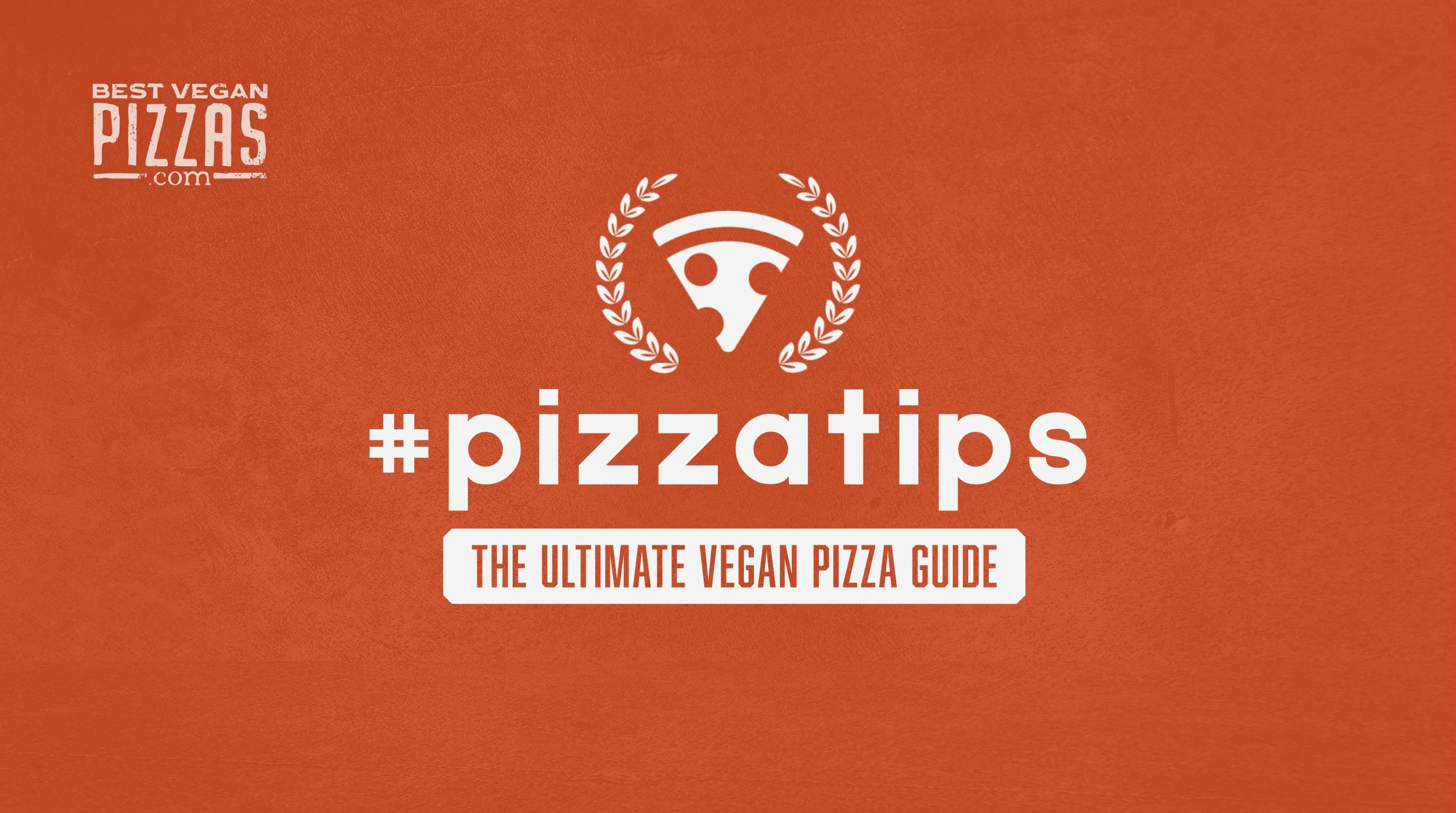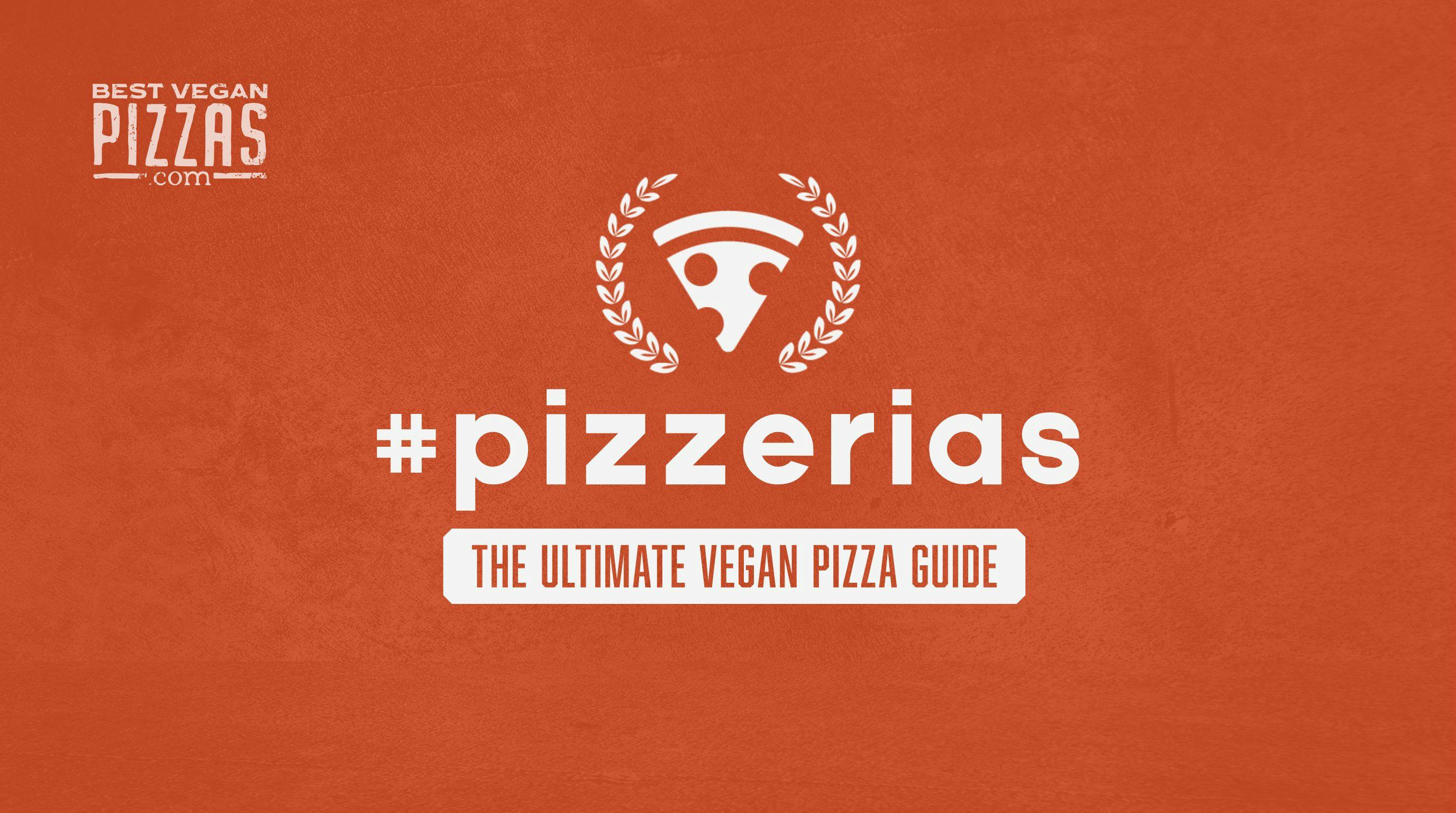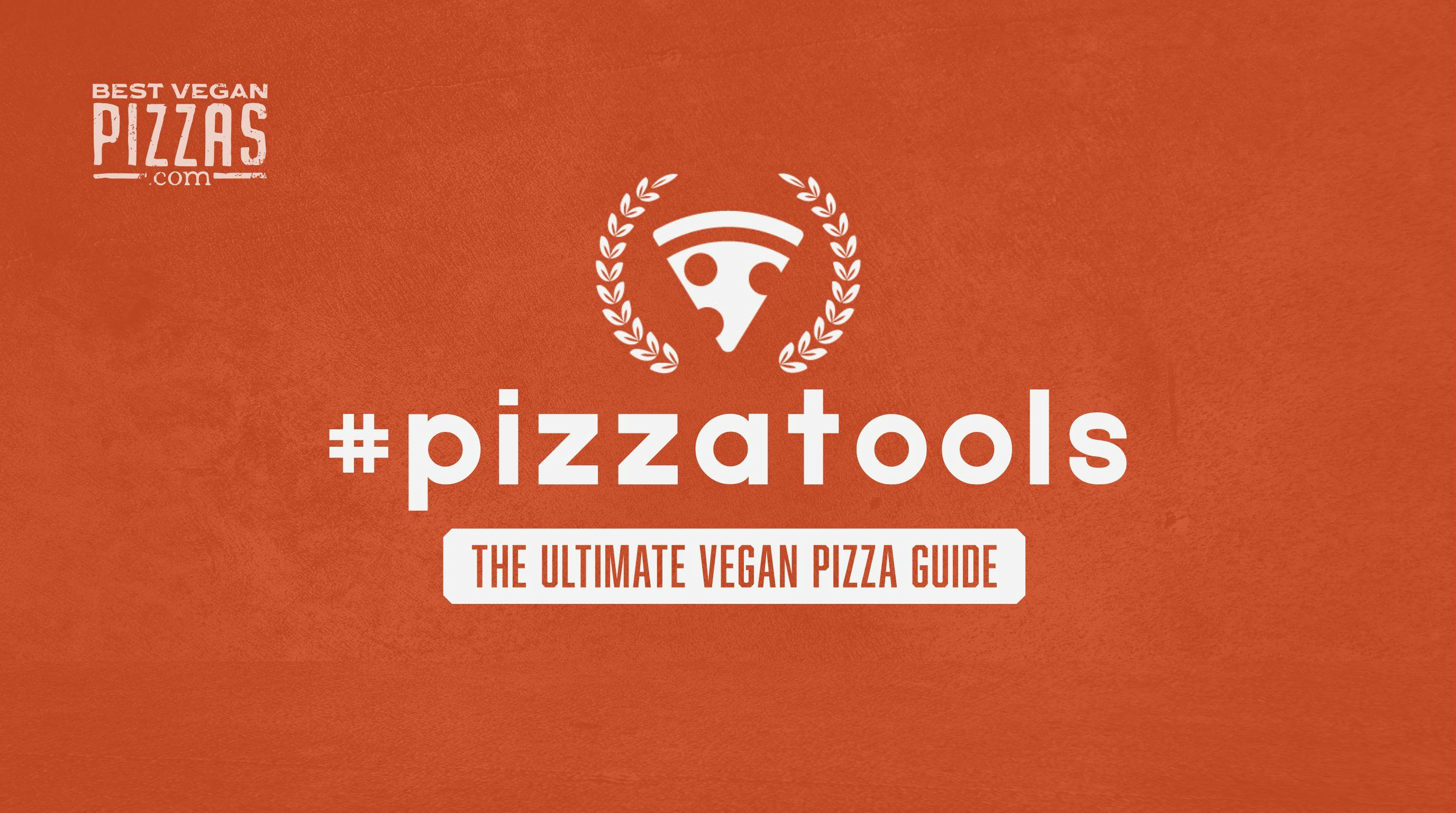Making vegan pizza at home that tastes like a pizzeria masterpiece is all about using the right tools. Here's a quick rundown of the must-haves:
- Pizza Stone or Steel: For a crispy, evenly cooked crust.
- Pizza Peel: To transfer your pizza in and out of the oven effortlessly.
- Dough Mixer: Ensures consistent, well-kneaded vegan dough.
- Kitchen Scale: Precise measurements for perfect dough and toppings.
- Cheese Grater: Shred block-style vegan cheese for better melting.
- Thermometer: Monitor oven and dough temperatures for optimal results.
- Dough Tools: Scrapers and proofing containers for shaping and rising dough.
- Pizza Cutter: Cleanly slice your pizza without messing up the toppings.
Each tool plays a critical role in achieving the ideal crust, texture, and flavor. With these in your kitchen, you'll be ready to make vegan pizzas that rival your favorite restaurant’s. Let's dive into how they work!
Related video from YouTube
1. Pizza Stone or Steel
The secret to a great vegan pizza lies in how it's cooked, and that's where a pizza stone or steel comes into play. These tools provide the high-heat surface needed to achieve that perfect crust.
A pizza steel, often seen as an upgrade to the traditional stone, conducts heat more efficiently. This means your crust cooks faster and more evenly, giving you that crispy base you want - especially important for vegan pizzas, which often have toppings with higher moisture content.
Steel is also more durable. It resists cracking and is easier to clean compared to stone, which requires extra care. While a steel can cost around $79, stones tend to be more budget-friendly. Both options can deliver that restaurant-style crust, but steel’s ability to distribute heat evenly makes it a great choice for vegan pizzas.
For best results, preheat your oven to 550°F for about an hour. Use parchment paper to prevent sticking, especially with vegan dough, which can be a bit trickier to handle. This small step makes transferring your pizza easier and avoids baking mishaps.
Once your stone or steel is prepped, the next challenge is moving your pizza smoothly - this is where a pizza peel becomes essential.
2. Pizza Peel
Quick tip: Lay a sheet of parchment paper on your peel before adding the dough. Vegan pizza dough can be stickier because of its higher hydration and unique gluten structure, so this step helps avoid any sticky situations.
A pizza peel is your go-to tool for moving pizzas in and out of a hot oven. Think of it as a large, flat spatula designed specifically for this task. While it's useful for any pizza, it's especially important for vegan pizzas, which can be a bit more delicate due to their plant-based ingredients.
When choosing a peel, material makes a difference. Wooden peels are great for handling raw dough, while metal peels are thinner and ideal for lifting cooked pizzas out of the oven. Each has its role, so having both can be handy for different stages of pizza-making.
To make the transfer process smooth, sprinkle your peel with a bit of cornmeal or flour - even if you're using parchment paper. This creates a slick surface for the dough to slide off easily. Work quickly to keep the dough from sticking and to avoid losing oven heat. With the right peel and a bit of practice, you’ll be sliding pizzas in and out like a pro.
Now that your pizza is in the oven, let’s make sure your dough is prepped to perfection from the very beginning.
3. Dough Mixer
A good dough mixer is key to getting consistent results and saving time, especially when aiming for the right texture in vegan pizza dough.
Stand mixers are a favorite among home pizza enthusiasts. Their dough hooks are specifically designed to develop gluten, making them perfect for creating a great vegan pizza crust.
If you're just starting out, consider a mid-range mixer priced between $100-$300. These models typically offer durability, multiple speed options, and enough power to handle vegan dough, which can be more challenging to mix. Higher wattage ensures the dough develops properly.
Here’s a quick breakdown of mixer options:
| Mixer Type | Price Range | Features |
|---|---|---|
| Entry-Level Stand Mixer | $50-$100 | Compact, suitable for basic mixing |
| Mid-Range Stand Mixer | $100-$300 | Sturdy motor, multiple attachments |
| Professional Stand Mixer | $500+ | Large capacity, built for heavy-duty use |
Choose a mixer with at least 325 watts of power to handle tougher doughs effectively. If you’re planning to make several pizzas at once, go for a bowl capacity of at least 5 quarts.
The right mixer ensures proper hydration and gluten development, which are crucial for achieving that ideal pizza texture. Once your dough is ready, it’s time to focus on accurate measurements for consistent results.
4. Kitchen Scale
King Arthur Baking's research highlights that even a slight 10% difference in flour measurement can completely change the texture and structure of your pizza dough. That’s why a reliable kitchen scale is a must-have for creating top-notch vegan pizza. This is especially true when working with specific ingredients like plant-based cheeses and other toppings. Compared to measuring cups, digital scales provide far more precision.
You can find digital scales to fit any budget. Basic options cost around $10-20 and include essential features like a tare function, while higher-end models priced at $50-100+ offer greater accuracy and extras like unit conversions.
When choosing a scale for vegan pizza making, prioritize one with a tare function. This lets you reset the scale to zero after placing a container, making it easier to measure multiple ingredients without extra hassle. It’s particularly useful when you’re working with several toppings or preparing larger batches of dough.
For the best results, always use your scale on a flat, stable surface away from heat and moisture. Clean it gently with a damp cloth to maintain accuracy, calibrate it monthly, and weigh dry ingredients before wet ones to keep your measurements precise.
"In baking, small variations in ingredient quantities can significantly affect the final product. A kitchen scale helps eliminate these discrepancies", says King Arthur Baking's research team.
Once you’ve nailed the measurements, it’s time to move on to preparing your toppings, starting with vegan cheese.
sbb-itb-aeda923
5. Cheese Grater for Vegan Cheese
Block-style vegan cheese tends to melt better than pre-shredded options because it doesn't have anti-caking agents. To get that smooth, even melt, you’ll need a reliable cheese grater.
When choosing a grater, focus on a few key features: sharp stainless steel blades, a nonslip base for stability, and multiple grating surfaces to handle different textures. Graters with etched teeth are especially good at tackling firm plant-based cheeses while staying steady during use.
A box grater with sturdy construction and sharp blades is a great option. The variety of grating surfaces lets you create the texture you need, whether you're going for fine shreds or larger pieces. Bonus points if it has a self-contained design to keep cheese shreds from scattering all over your counter - it makes cleanup so much easier.
To keep your grater in top shape, skip the dishwasher. Hand washing is better for maintaining blade sharpness. Use a stiff-bristled kitchen brush to remove any stuck cheese bits without scratching the surface.
Once your cheese is grated to perfection, you’re ready to focus on baking your pizza at just the right temperature.
6. Thermometer for Checking Temperature
A digital thermometer is a must-have for getting the temperature just right - an essential step for making top-notch vegan pizza. Temperature accuracy is critical at two key points: when preheating your oven and during dough fermentation and proofing.
To get the best results, place the thermometer in the middle of your oven, away from heating elements. Many home ovens can be off by 25–50 degrees from what they display, which can mess with your crust’s texture and how well your vegan cheese melts. For your dough, keeping an eye on the temperature ensures proper yeast activation and gluten formation, both of which directly influence the final texture and flavor of your pizza.
"Precision in baking has become increasingly important for home pizza makers. Small variations in temperature can significantly affect the baking process, making thermometers indispensable for precise control."
Make sure to calibrate your thermometer regularly to keep it accurate. Allow your oven and baking surface to preheat for a full hour. Keep in mind that steel heats up faster and more evenly than stone. By paying close attention to temperature, you can avoid common vegan pizza issues like uneven cheese melting or dried-out plant-based toppings.
Once your oven and dough are at the right temperature, you’re ready to focus on perfecting your crust and toppings with the proper dough tools.
7. Dough Tools
Getting that perfect pizza crust at home starts with the right tools. A 6-inch stainless steel scraper with a comfortable handle is a must-have for lifting, dividing, and shaping dough. It also helps keep your workspace clean and organized.
Another key tool is a proofing container. Opt for a 2-4 quart glass or stainless steel container. These materials are better than plastic because they're non-reactive and maintain consistent temperatures. This consistency is important for proper dough development. Keeping the right level of humidity ensures your dough stays moist and rises evenly, doubling in size during proofing.
"The right dough tools can make or break your pizza-making experience. A quality stainless steel scraper and proper proofing container are as essential to great pizza as the ingredients themselves", says the King Arthur Baking test kitchen team.
When choosing dough tools, focus on durability and easy cleaning. To keep them in good shape, wash them right after use and store them in a dry spot to avoid rust.
For the best results, use your dough scraper gently, especially with wet dough. A 45-degree angle works well for lifting and moving dough without tearing it. This approach helps maintain the gluten structure, which is essential for that perfect vegan pizza crust.
With these tools in hand, you're ready to nail your crust. Next up: slicing and serving your pizza like a pro.
8. Pizza Cutter and Serving Tools
After you've baked your pizza just right, the next step is slicing and serving it with the proper tools. A sharp pizza cutter is key to getting clean slices without tearing the crust or dragging the toppings. This is especially important for vegan pizzas since plant-based cheeses can be a bit more delicate than dairy-based ones and need careful cutting to keep everything intact.
Stainless steel, heat-resistant paddles are great for transferring slices without ruining their shape or having the cheese stick to the tool. When choosing a pizza cutter, go for one with a sturdy, comfortable grip and a blade that's easy to sharpen or replace.
To keep your tools in top shape, clean them thoroughly after each use and store them in a dry spot. Proper care means they'll stay sharp and ready to deliver neat cuts every time you prepare your next vegan pizza masterpiece.
Conclusion
Now that you have the right tools, it’s time to bring everything together for an amazing pizza-making experience. These eight tools are designed to help you create top-notch vegan pizzas, with each one playing a key role in the process.
As Baking Steel inventor Andris Lagsdin explains:
Steel is a more conductive cooking surface than stone... pizza cooks faster and more evenly at a lower temperature, resulting in a beautiful, thin, crispy crust.
Whether you're a beginner or a seasoned cook, these tools make it easier to achieve great results. From accurately measuring ingredients with a kitchen scale to slicing with a sharp pizza wheel, every piece of equipment contributes to the perfect vegan pizza.
Taking care of your tools is just as important. Proper maintenance ensures they last longer and help you consistently create pizzas that could rival your favorite vegan pizzeria. With the right tools and techniques, you’ll master the art of crafting pizzas with crispy crusts and perfectly melted dairy-free toppings.



